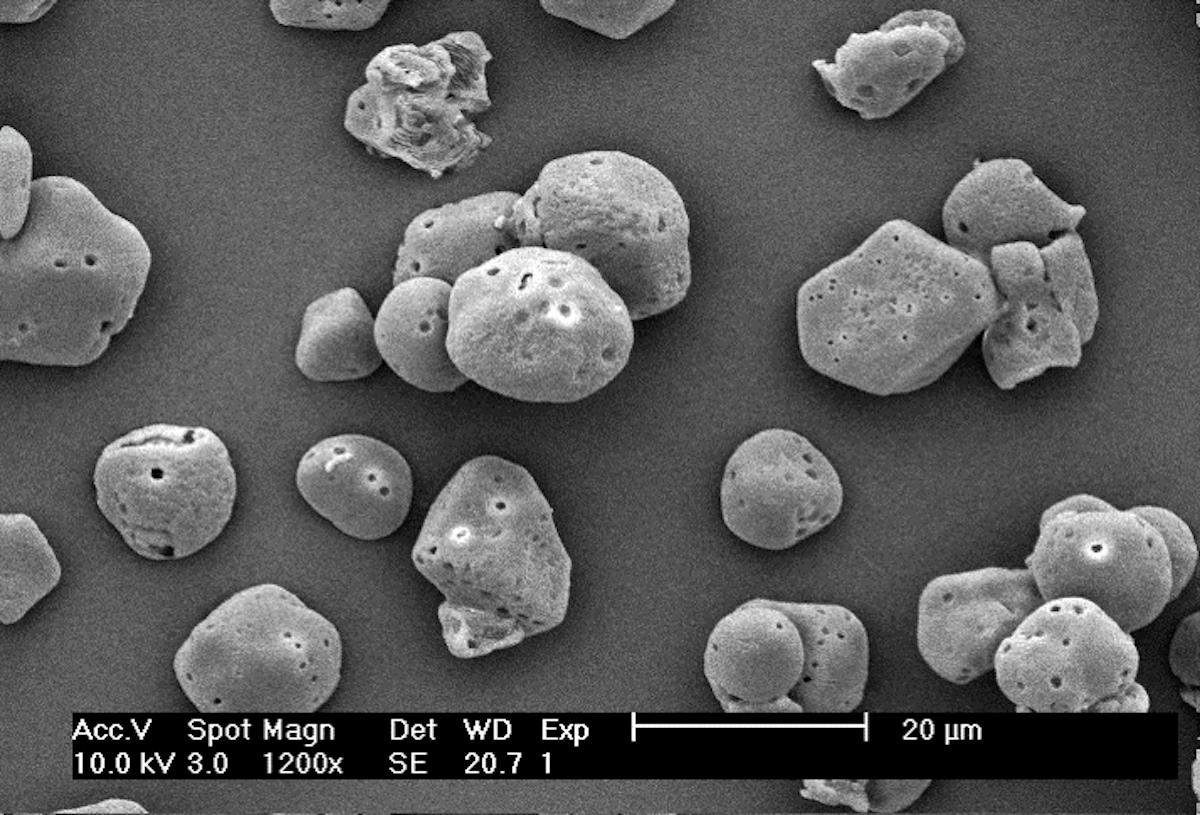Bake-Only Starch Coatings as Alternative to Deep Frying

The Problem
People love fried food for its flavor, color, and texture. The high oil content, however, diminishes the nutritional value of the food.
The Research
Finding a way to use baking as a way to replicate what’s delicious about fried foods while reducing fat calories is what Ya-Jane Wang has been researching. Wang, professor of carbohydrate chemistry for the University of Arkansas System Division of Agriculture and a co-author of this research, designed this study to explore a new food coating process that yields healthier foods without compromising the fried flavor.
Wang’s research begins with enzyme-hydrolyzed starches. When amylolytic enzymes hydrolyze starches, a honeycomb-like structure develops, which can absorb and encase fluids for delayed release—all while maintaining a powder form. When processed correctly, these hydrolyzed starches can be used as an oil delivery system for bake-only goods, resulting in improved flavor and texture.
The ability of hydrolyzed starches to deliver oil at each step helps Wang’s coating system succeed where conventional batters struggle. Traditional coating systems typically minimize the addition of oil due to its tendency to mix with the product coating and breading to form dough-like clumps. The resulting baked products lack the flavor and texture of fried foods. Wang’s use of oil-plated hydrolyzed starch makes it possible to incorporate more oil into bake-only products, mimicking the sensory attributes of fried foods while still adding significantly less oil than by deep frying.
Wang developed several iterations of this technology using bake-only chicken nuggets. The resulting products underwent sensory analysis by eight trained panelists. Statistical analysis found no significant difference in sensory attributes between the bake-only nuggets and commercial, partly-fried-partly-baked samples.
The Bottom Line
This patented coating technology may someday allow consumers to enjoy their favorite fried foods—without the frying. Further research is needed to refine the coating process to better align the sensory aspects of the bake-only chicken nuggets with fully-fried samples.
Tekcapital PLC, a United Kingdom-based global university technology and intellectual property services company, licensed this technology for potential future commercialization.
The Researcher

Ya-Jane Wang
Professor
Department of Food Science
As supervisor of the carbohydrate chemistry program, Wang specializes in research that seeks to further the use and improve the performance of carbohydrate-rich bioresources. By developing a better understanding of carbohydrate structure and function, the program team’s goal is for carbohydrates to be better utilized in food, pharmaceutical, and industrial applications.
